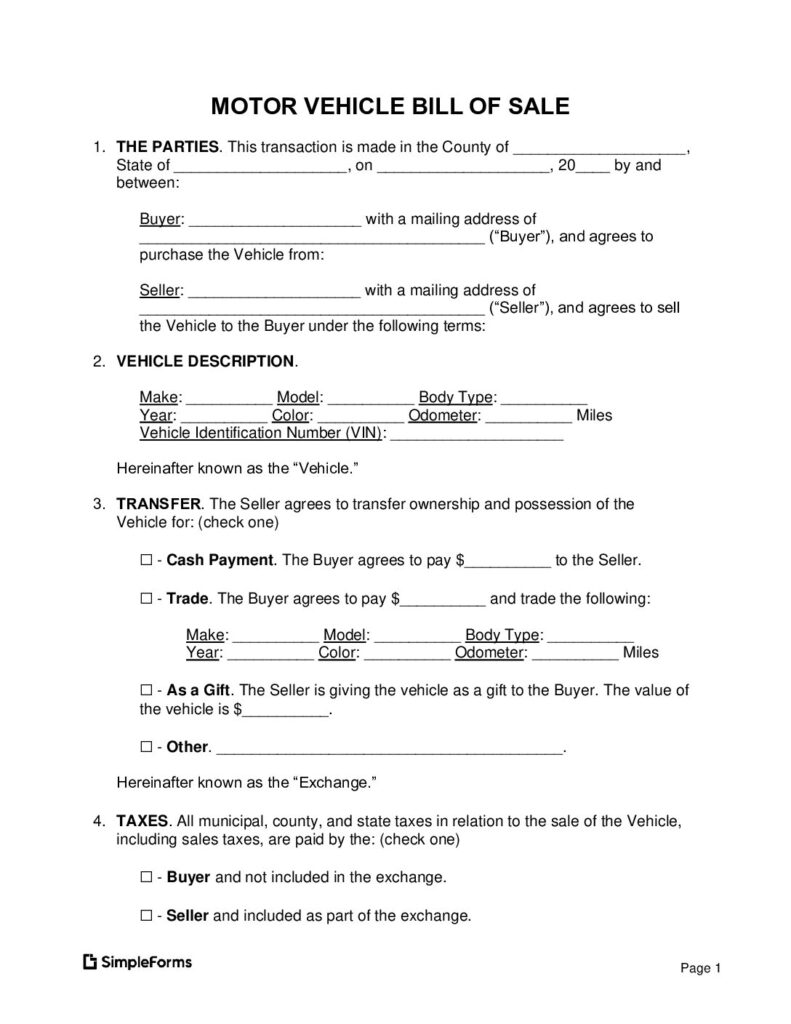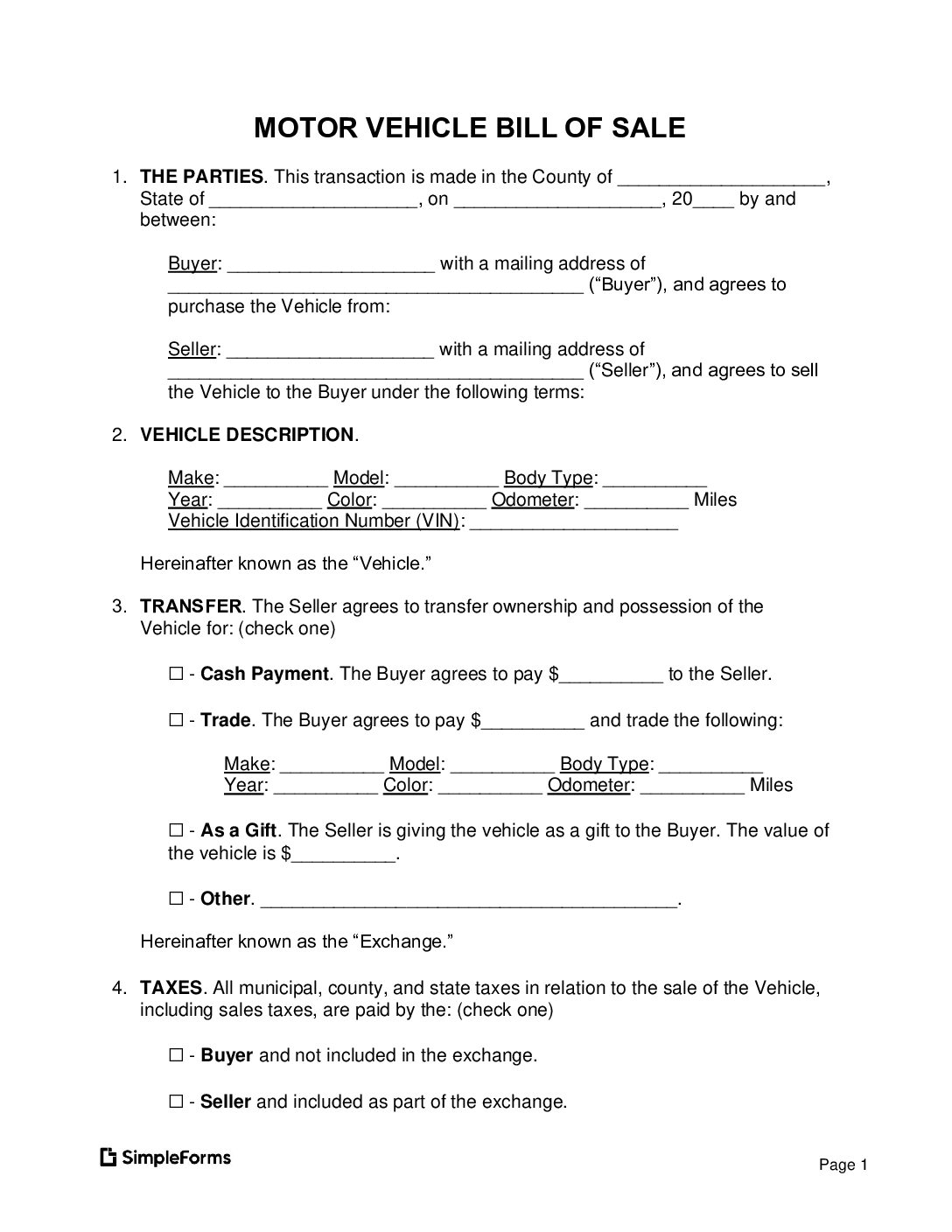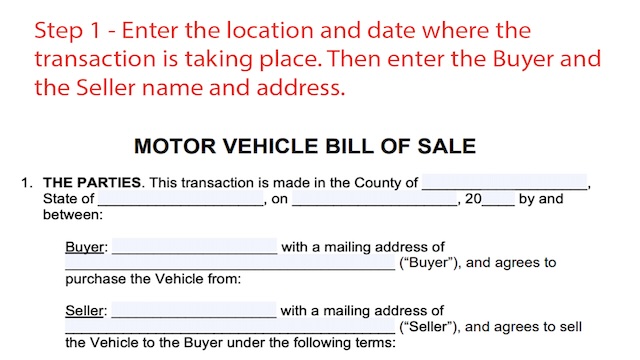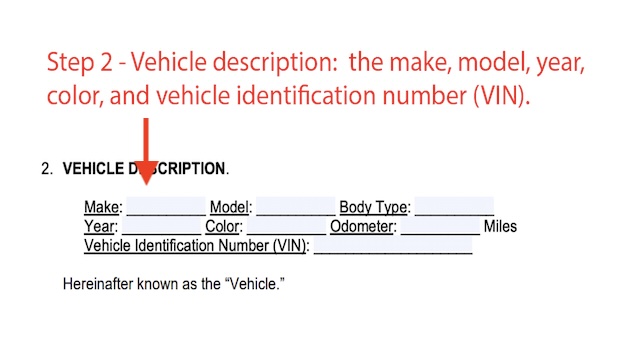A car bill of sale form is a legal document that is used to transfer (car) ownership of interests from one person to another. It is used in transactions, including the sale, exchange, gift, or mortgage of objects.
Car Bill of Sale Templates By State
- Alabama
- Alaska
- Arizona
- Arkansas
- California
- Colorado
- Connecticut
- Delaware
- Florida
- Georgia
- Hawaii
- Idaho
- Illinois
- Indiana
- Iowa
- Kansas
- Kentucky
- Louisiana
- Maine
- Maryland
- Massachusetts
- Michigan
- Minnesota
- Mississippi
- Missouri
- Montana
- Nebraska
- Nevada
- New Hampshire
- New Jersey
- New Mexico
- New York
- North Carolina
- North Dakota
- Ohio
- Oklahoma
- Oregon
- Pennsylvania
- Rhode Island
- South Carolina
- South Dakota
- Tennessee
- Texas
- Utah
- Vermont
- Virginia
- Washington
- Washington D.C.
- West Virginia
- Wisconsin
- Wyoming
What is a Car Bill of Sale Form?
A car bill of sale form is used to transfer ownership of moveable tangible items, and can only be used by individuals and businesses that are not corporate. The car bill of sale that protects both the buyer and seller in the transaction. The form create trust between the two parties.
In England and Wales, car bill of sale forms are regulated by two Victorian pieces of legislation: the Bills of Sale Act 1878 and the Bills of Sale Act (1878) Amendment Act 1882. These laws were created because of the issue of fraudulent use of bills of sale.
Key Elements
- Buyer’s name and address
- Seller’s name and address
- Vehicle description (make, model and year)
- Vehicle Identification Number (VIN)
- Sale date
- Transaction details (price, trade, or gift)
- Warranty details (“as-is, where-is”)
- Signatures
Legal Significance of the Bill of Sale Form
- Proof of Transfer: The car bill of sale document turns the ownership from one person to another.
- Tax: When it’s time to do taxes, this paper to remind you of the car’s price.
- Legal Protection: Show this paper as a shield to prove it’s really yours.
- Loan Document: Banks often want this paper before lending you funds (loan) to pay for the car.
- Registration Requirement: Many places won’t let you register your new ride without this document. The document seals the transfer agreement, making it official.
Legal Requirements by State
Each state holds its own set of rules for car bills of sale. Some require this document as proof of transfer, like a certificate. A public notary must witness the signing. Certain states don’t need a bill of sale to transfer cars.
Notary Requirements
The following state require a bill of sale form in order for the transaction to be valid:
- Louisiana
- Maryland
- Montana
- Maine
- Nebraska
- New Hampshire
- West Virginia
State-Specific Stipulations
Every state has its own set of codes and rules for a car bill of sale form to be valid.
- California: Requires a thumbprint for added authenticity (Assembly Bill 1215). Dealers must check the National Motor Vehicle Title Information System before selling used vehicles.
- Arizona: Must provide proof of passing emissions test.
- Connecticut: asks for an Oath of the Odometer.
- Georgia: Must have a public notary witness the bill’s signing from both parties.
- Montana: Proof of no sales tax from other states (out-of-state purchases).
Required Documents
- Title: The car’s title is the proof of ownership showing that you’re the current owner and have the right to sell it.
- Loan Payment: If a loan is involved, you’ll need to show that loan paid off fully.
- Identification: A government-issued ID (driver’s license) to confirm your identity.
- Notarized Document: Some states require a notarized Bill of Sale, which is a stamp certifying your document is authentic.
- Warranty: Any reports or warranties on the vehicle.
Additional Forms to Consider
- Odometer disclosure statement – this form shows the car’s mileage.
- Title – Prove that you’re the car’s new owner. The title transfer makes it crystal clear who’s responsible for the car now.
- Sales Tax Form – The sales tax form tells the treasury precisely what they need to know about the money changing hands. Without it, they might not let you pass legally driving your car.
- Trade-in agreement – Regarding trade-ins, you’ll want a vehicle trade-in agreement form.
What to include in a bill of sale document?
Step 1 – Seller and Buyer Contact Information
Seller and buyer details – The names and contact information of both the seller and buyer of the vehicle.
Step 2 – Vehicle Details
Vehicle description – the make, model, year, color, vehicle identification number (VIN), and any other details about the car being sold.
Step 3 – Price for Car
Purchase price – The amount of money that the buyer agrees to pay for the car. This part of the document ensures transparency and clarity.
Box content goes here.
Step 4 – Payment Methods
Payment – If the buyer pays the purchase price in installments or uses any other payment arrangement, these details will be included in the bill of sale.
Step 5 – Local Jurisdiction
Date and location – The document will state the date and place where the car sale is taking place. This helps establish the jurisdiction where the deal is legally binding.
Step 6 – Odometer Disclosure Statement
Odometer reading – Record the current mileage on the car\’s odometer at the time of the sale. This is essential for documenting the car’s condition and to ensure transparency regarding its usage.
Step 7 – Condition of the Vehicle
Condition of the car – Describe the overall condition of the vehicle, including any known defects or damages in the car bill of sale form. This protects the buyer by accurately representing the car’s condition before purchase.
Step 8 – Warranty/Guarantees
Warranty information – If the seller provides any warranty or guarantee, it should be clearly stated in the bill of sale. This includes any terms and conditions associated with the warranty.
Step 9 – Signatures of Both Parties
Signatures – Finally, the car bill of sale should be signed and dated by both the seller and the buyer to indicate their agreement to the terms and conditions of the sale.



